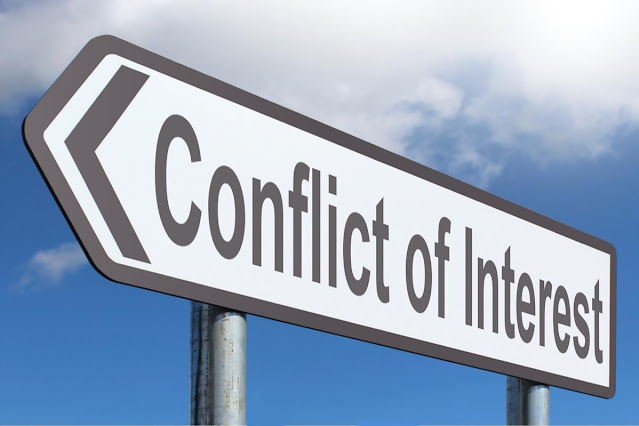Conflict of Interest in Research: Conflict of Interest Examples, Definition, Types and Understanding
CONFLICT OF INTEREST IN RESEARCH
What is the conflict of interest? What should a researcher do about it?
Authors are often asked to provide a conflict of interest statement when they submit their text for publication into journals, magazines, and other platforms. This article provides all in one guidance on conflict of interest.
Interest Definition and Explanation
Interest is adherence, dedication, aim, objective, or importance held by an individual or a group of people. In broader terms, it is something that holds value or has an impact on an individual or a group of people.
For instance, if we say that Jim has to complete his task so that he can increase his chances of getting promoted, then the completion of that task would be in the interest of Jim. Similarly, if we talk about an organization that has to complete and submit the project to obtain revenue, then the cessation of the project would be in the interest of that organization.
Conflict of Interest Definition and Explanation
Conflict of interest is the incompatibility of objectives or concerns between two or more individuals or organizations. Conflict of interest occurs when two or more different interests are involved in a single pursuit. One differs from the other, having different approaches. Conflict of interest is a situation in which compromise has to be made.
It is puerile to think that the conflict occurs due to the deportment of an individual, rather it lies within the situation. So inherently, conflict of interest is not something dire.
Conflict of Interest Example
For instance, let’s consider a man who works for a company and have commitments to that company, and at the same time, he has loyalty to the family business as well, and both expect his utmost interest. In that case, conflict of interest occurs.
Conflict of Interest in Research
Conflict of interest in research exists when an individual (Author, investigator, editor, reviewer) has a specific interest, that could affect his or her impartiality, or maliciously influence his/her actions. Because of the existence of a potential conflict, the integrity of the research might get affected.
Types of conflict of interest
There are majorly four types of conflicts of interest as listed below:
- Financial conflict of interest
- A personal conflict of interest
- Contractual conflict of interest
- Professional conflict of interest
When we talk about conflict of interest, then personal or professional relationships might get involved. For instance, you might have worked with the author of the content in the past, or you might currently work with him at the same office. Similarly, the author might be a dear friend of yours. In all of the mentioned cases, conflict of interest lies.
Conflict of interest as Reviewer
As a reviewer, you might find that the research you are evaluating is very similar to or perhaps competing with the document that you are currently preparing yourself, and it can decrease the importance of your research. In that case, you might dismiss it as inadequate. It is where conflict of interest in research occurs.
Financial Conflict of interest
The most common conflicts of interest are financial relationships, including direct conflict of interest, such as employment, stock ownership, grants, etc. This type of conflict includes the financial benefits of an individual that can help him/her in the future.
How to Cope with Conflict of Interest?
Many reviewers, researchers, authors, face these kinds of conflicts while reviewing different types of manuscripts or researches. But what is the solution if the conflict becomes apparent to the researcher? Is it correct to ignore these conflicts?
The answer to these questions is that one should never ignore it and should consider disclosing it. It is ethical to report the conflict of interest to make sure that the quality of the research in question must not get compromised. A researcher must immediately report these conflicts when they become apparent. In case, if it has become evident, and the researcher thinks that he/she can still do his/her work with integrity, even then the potential conflict must be reported to the journal’s ethics group or the journal editor.
When the researcher takes a step forward and discloses the conflict, then it is reviewed by an independent substantive review committee or by the journal’s ethics group ( ethics group of the journal in which the research paper is going to publish ). The committee then reviews it and present their recommendation regarding approval or disapproval.
According to the U.S office of research integrity:
“Having a conflict of interest is not in itself unethical, and some are unavoidable. Full transparency is always the best course of action, and, if in doubt, disclose.”
Understanding Conflict of Interest
We are pretty much aware that these types of conflict occur usually. Many researchers or reviewers around the globe face these conflicts while reviewing the research paper or manuscript. The best solution to cope with these conflicts is to report to the institution’s ethics group immediately. Disclosure of conflict of interest is the basis of the editorial decision regarding publishing the research. Many researchers or reviewers ignore the potential conflict of interest, thinking that it will not affect their judgment but, the right thing to do is to report and let the editorial board decide. It is the ethical responsibility of every reviewer, author, and person to report the conflict of interest to the authorities.
Zahira Bano

